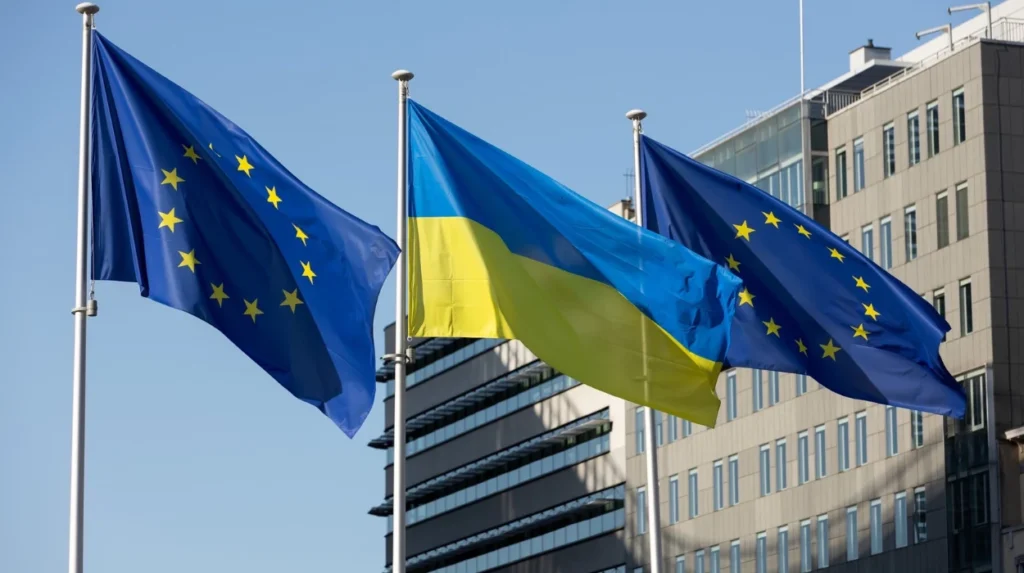As Ukraine navigates the challenging path toward European Union membership, Members of the European Parliament (MEPs) have renewed their call for accelerated reforms and the timely opening of negotiation clusters. Against the backdrop of Russia’s ongoing aggression, the European Parliament’s Foreign Affairs Committee underlined the urgent need for Ukraine to maintain reform momentum and for EU institutions to support Kyiv’s accession bid with unwavering commitment.
With the EU accession negotiations formally launched in June 2024 following Ukraine’s candidate status granted in June 2022, 2025 has become a pivotal year. Ukraine aims to open up to six negotiation clusters during this year, a process that involves detailed legislative and institutional alignment with EU acquis. The first clusters, especially the “Fundamentals” relating to public procurement, judiciary, fundamental rights, and financial control, lay the foundation of Ukraine’s readiness for integration.
MEPs: Strong Support for Ukraine’s Sovereignty and Reform Efforts
The European Parliament adopted a report on July 15, 2025, reiterating its strong support for Ukraine’s sovereignty, territorial integrity, and independence. This support comes alongside calls for enhanced EU backing, including faster delivery of military and financial assistance, and diplomatic efforts to maintain broad international solidarity with Kyiv.
MEPs expressed encouragement for Ukraine’s dedication to implementing EU-related reforms even amid war, emphasizing the country’s extraordinary efforts to strengthen democratic institutions. However, many voices remain cautious, noting key challenges still ahead. As the report stated,
“the judiciary in Ukraine remains one of the sectors more vulnerable to corruption and political interference,”
highlighting the critical nature of ongoing rule of law reforms.
The committee stressed that these reforms are not just formalities but “an absolute prerequisite for progressing towards EU membership and for the country’s rebuilding after the devastation.” This aligns with the EU’s comprehensive enlargement strategy, which places the “Fundamentals” cluster at the centre of accession negotiations.
Opening Negotiation Clusters: The Roadmap and Political Obstacles
Negotiations are structured around 33 chapters grouped into six clusters. The first cluster, often referred to as “Fundamentals,” includes critical areas such as public procurement (Chapter 5), judiciary and fundamental rights (Chapter 23), justice, freedom and security (Chapter 24), statistics (Chapter 18), and financial control (Chapter 32). The second cluster, “Internal Market,” and the sixth cluster, “External Relations,” cover extensive economic and foreign policy fields.
Following multiple screenings of Ukraine’s legislation and reforms, the European Commission confirmed Ukraine’s readiness for the start of Cluster 1, with further screenings of Clusters 2 and 6 underway and expected to conclude by autumn 2025. As Enlargement Commissioner Marta Kos explained in May,
“Ukraine has done its homework, so is ready for Cluster 1 – Fundamentals to be opened,”
with the final decision resting now with the unanimous approval of all 27 EU Member States.
However, political obstacles remain. Hungary, under Prime Minister Viktor Orbán, has repeatedly used its veto power to delay EU enlargement steps including Ukraine’s progress. This introduces uncertainty about the timeline and places pressure on EU negotiators to balance internal political dynamics with strategic enlargement goals.
Ukraine’s Reform Ambitions and Implementation Challenges
Ukraine’s leadership exhibits remarkable ambition in advancing reforms. President Volodymyr Zelensky underscored the intent to open all clusters in 2025, calling for a rapid and dynamic accession process. During Poland’s presidency of the EU Council in early 2025, Ukraine initiated negotiations on two clusters, with hopes to include others under Denmark’s chairmanship in the latter half of the year.
Deputy Prime Minister for European and Euro-Atlantic Integration Olha Stefanishyna called the “Fundamentals” cluster
“our focal point. It consolidates reforms in public administration, judicial independence, and anti-corruption strategies critical for EU alignment.”
Particularly, anti-corruption reforms receive strong emphasis. MEPs have welcomed progress but caution that corruption remains a fundamental vulnerability. The judiciary’s independence and fairness are key to building trust within Ukraine and with European partners. Strengthening institutions and ensuring transparent, merit-based appointments remain ongoing priorities.
The EU and its institutions also play a central role in implementation support. The European Commission’s provisional assessment of Ukraine’s institutional preparedness provides a foundation for further technical assistance and monitoring, crucial during wartime reconstruction and governance reforms.
The Broader Geopolitical Importance of Ukraine’s EU Accession
Ukraine’s European integration remains symbolic and strategic amid ongoing Russian military aggression. The European Parliament affirmed that any peaceful resolution must respect Ukraine’s sovereignty and the will of its people, opposing external imposition of political outcomes.
MEPs stressed the EU’s role not only in assisting Ukraine but also in signaling to the world that membership perspectives matter—supporting democratic countries under threat and reinforcing European strategic interests.
The accession process, while technically demanding, acts as a geopolitical tool to bolster Ukraine’s resilience. Accelerating cluster negotiations helps maintain momentum, keeps reform drives alive, and sustains international attention and assistance.
Civil Society and Monitoring: A Key Component
Consistent monitoring by civil society actors and EU watchdogs ensures accountability through the accession negotiation process. Transparency and public engagement help ensure that reforms go beyond formal legal harmonization to transformative changes with tangible impacts on governance and rule of law.
Ukraine’s experience since 2022 has underscored the importance of societal involvement. MEPs emphasize that EU accession must also serve to rebuild social trust and democracy within Ukraine itself, necessitating broad reform ownership.
As the EU and Ukraine advance into the critical negotiation phase, the stakes are high. The current momentum—notwithstanding political hurdles—offers a historic opportunity to strengthen European stability, solidarity, and democratic governance. The European Parliament’s resolute endorsement and Ukraine’s determined reform agenda together mark the path toward a closer, secure, and prosperous Europe.
The words of MEPs reflect this spirit:
“We reaffirm our unwavering commitment to Ukraine’s independence, sovereignty, and territorial integrity and urge the Commission and Council to open EU negotiating clusters at the fastest pace possible to help Ukraine’s European aspirations become a reality.”
The world watches as Ukraine seeks not only EU membership but the restoration of peace, justice, and the rule of law on its soil—a vision that hinges on collective resolve and sustained partnership between Kyiv and Brussels.







